Hamish McLachlan: How horses saved superstar Brazilian jockey João Moreira from a life of crime
JOÃO Moreira grew up in Brazil with “next to nothing”. Now a world-class jockey, he tells Hamish McLachlan how being introduced to horses saved him from a life of crime.
VIC News
Don't miss out on the headlines from VIC News. Followed categories will be added to My News.
- Magic Man coup for Moonee Valley
- Moreira sets another Hong Kong record
- Lloyd; racing’s enigmatic legend
JOÃO Moreira grew up in Brazil with very little. No bathrooms or running water, no electricity and little food. He lost his father when he was very young, and was forced to grow up quickly. A life of crime was the most likely path, but it was being introduced to horses that saved him. We spoke about working his way up from the bottom, horse theft, what makes him one of the best jockeys in the world, his Melbourne Cup ride and being called the ‘Magic Man’.
HM: You grew up with next to nothing — in your words, “dirt poor”. How did you end up on a horse?
JM: It’s a long story. My family actually had no place to live growing up. They were living on a small little piece of land that my father’s brother had. I lost my father when I was very young, when I was only seven, and from then on we all had to make it on our own. When we lost our father we all had to go on by ourselves, and my brothers and sisters worked bloody hard to make it happen.
HM: Racing gave you a way forward — did it allow you to get your whole family out of poverty?
JM: I’m not the one who saved their lives from the poverty they were in. I’ve helped them a little bit, but honestly, my brother and sister have helped me much more than I’ve helped them. They gave me better conditions to live in, they looked after me, they’d take me away from the wrong places, they’d take me away from the wrong people, and most of all, they gave me opportunities.
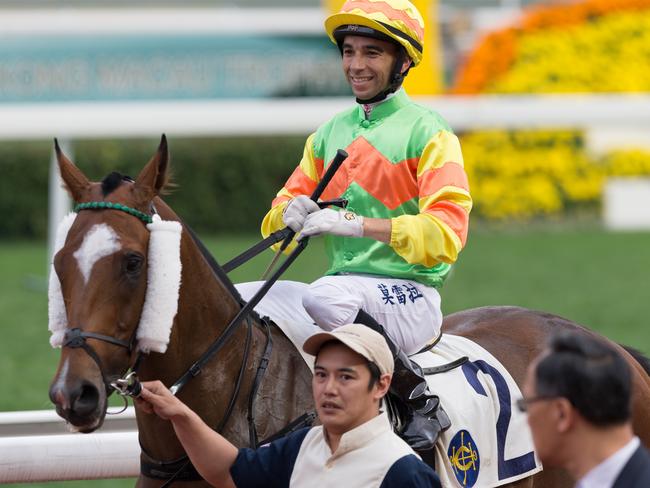
HM: In what way?
JM: When I was 14 my brother helped me get a job in the company that he was working at. In that company there was a guy who knew that I used to steal horses from our neighbours. It’s a small little city, and small little town, so everyone would hear everything about everyone — there are no secrets. He’d heard things about me, and he knew that I liked horses very much. Eventually one day he said to me “You should try to be a jockey”, and he’s the one who planted the seed in my mind, because up until then I’d seen races, but I’d never contemplated becoming a jockey.
HM: Sorry — you stole horses?
JM: Yes, well, more like borrow them for a bit. The horses that I used to steal weren’t racehorses, they were just farm horses, work horses. They were horses that the owners used during the day to work with, before releasing them to rest during the night. That’s when we used to go onto the farms and steal them, because we knew the owners would be resting as the horse would be resting somewhere else too. The poor horses!
HM: Back to becoming a jockey … your work colleague said you should try and become a jockey?
JM: Yes, he said I should, so I listened to him, and I went to the boss “Look, I want to try something else. I want to try to do something that I like”. Even though I liked what I was doing at the company, I wanted to go for something that I would really love. He thought I should too, so I resigned from the company, and I went back with all the paperwork done to join the jockey academy. When I got there, they told me that there were no more places available. I ended up having no job, and I couldn’t get into the sport.
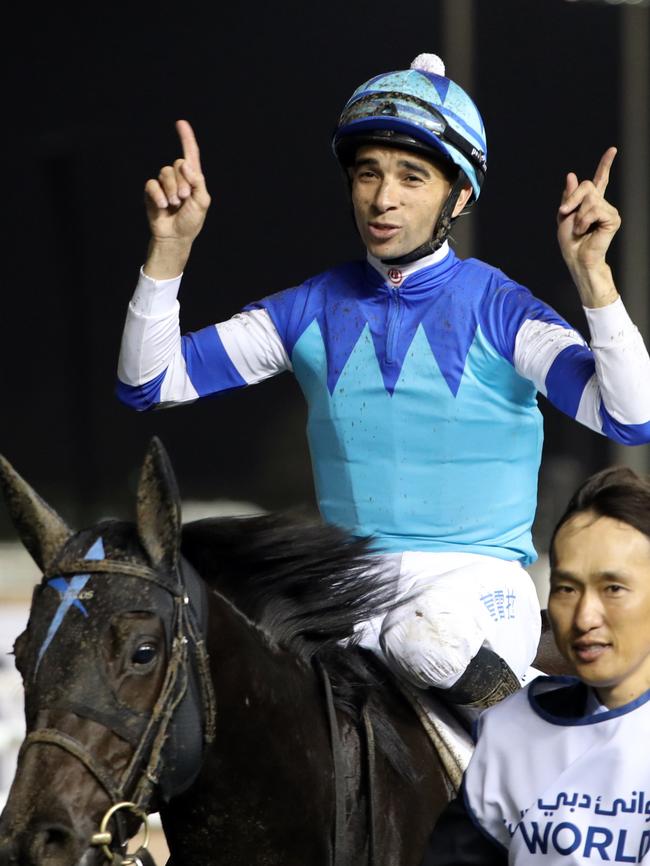
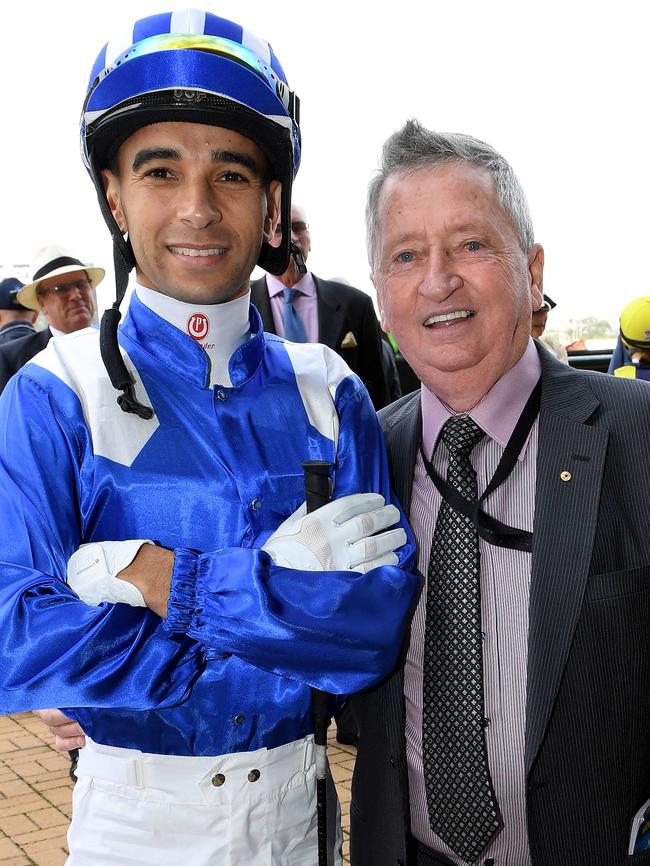
HM: And then your cousin offered you a way into horses?
JM: He did — you have done your research! A cousin of mine, he said: “Look, as you know I’m a horse breaker, I break in horses. You can come and help me. Obviously I won’t be able to pay you because my income is small, but I will introduce you to the sport.” I joined him in one of the stables he was working at, and once I started to show dedication, the trainers around realised that I was really committed, and I really wanted to make it happen. I started out in racing as a stable hand.
HM: On the pitchfork?
JM: Yes, I was just doing everything on the ground. Cleaning up the stable, doing the bandages, doing the medication.
HM: You once said that without racing, it might have been a life of crime. Do you think that’s right?
JM: I don’t think that’s right, I’m very, very sure about it!
HM: Really?
JM: Yeah. I was getting involved in the wrong things. I don’t think I was a bad boy; I was just getting involved with the wrong people. My family realised that they had to find a way to get me off the streets. I was going down the wrong paths and they were worried that they wouldn’t be able to get me back. If I hadn’t found racing, I think I’d be pretty bad today.
HM: You grew up in the favelas?
JM: Where I came from, there was no electricity, there were no toilets, and there were no water pipes that you could get water from, so it was pretty much just a jungle. The favelas you see on TV and at the Olympics last year are much, much nicer then where I come from.
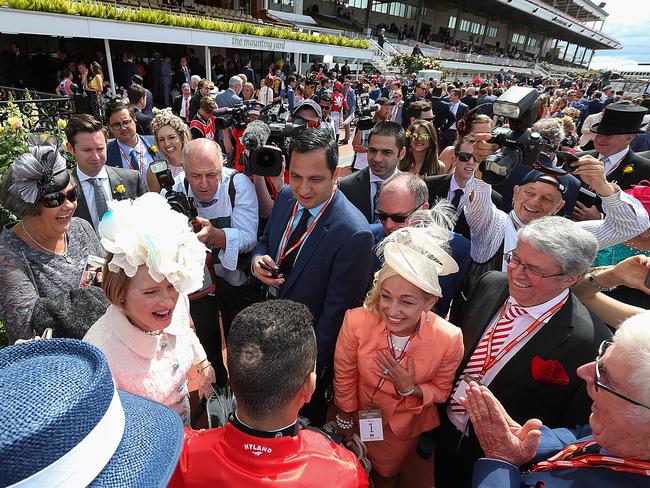
HM: You met people who took your down the wrong paths?
HM: You can pick a bunch of very good people in your life to be friends with, but I picked a good number of them that were very bad. Those bad ones are the ones that were attracting me the most, because they were showing me the sins of life. I didn’t know what was right and wrong back then. I ended up joining those guys, which was obviously the wrong thing to do.
HM: Were you often in dangerous spots as a kid?
JM: Often. Even once I graduated as a jockey, I was riding for some of the biggest stables in Brazil, so it was pretty good. It’s not very far from the favelas. If you’re riding, or if you’re living at the jockey club, you can hear the fire shots from favelas. That’s not a very nice experience! There was one night that I was living at the jockey club, when I was just getting myself ready to go for my overseas trip, and I could hear the fire shots. I said “Geez, I hope nothing comes over in my direction!” It’s very bad.
HM: You were lucky to take the right turn at some point.
JM: I am. I would never have dreamt to get to where I am today when I started off. I wish I could show you where my life started — it should give everyone hope. I was just hoping that I could make it as a jockey, and once I started off I was hoping that I was just going to go through to my apprenticeship and finish it. I thought half way through jockey’s licence I was just going to be left on the side, but things just changed around me in a way that I never expected. I was so lucky to able to get myself surrounded with good people, and they all supported me in a lot of good ways. They gave me motivation, they taught me how to do things properly, and I was given a lot of opportunities.
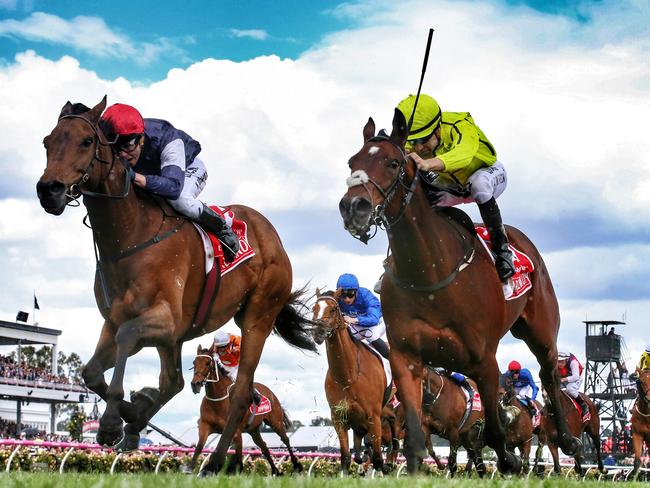
HM: One thing that I assume you are most proud of in your life is being able to buy your mother a house?
JM: Yes, but before I’d made it, my brother and sister had. We didn’t have a place to stay, and we all worked hard, but before I was able to make it, my brother and sister were able to buy a piece of land. The guy who built the house up turned out to be a very good friend of our family. I will never forget those people who are a part of my life.
HM: Everyone has a stage in their life where they say wow, I actually might be good at this. When did that come to you with racing?
JM: I honestly never thought I was that good, and I still don’t think I’m that good. The thing is that I’ve worked bloody hard. I think I deserve to achieve what I have been able to achieve, because the amount of work I’ve put in has been massive. I don’t regret anything that I’ve done to make it happen, because it worked. It’s such an amazing career that I’ve had. As you mentioned, I came from nothing, to now being able to win races worldwide, all over the place. For doing that, I have the pleasure of getting to know a lot of nice people. People with different kinds of views. The horses themselves at every place that I have been, behave and act differently. For me to be able to be exposed to that is such a pleasure.
HM: They call you the “Magic Man”.
JM: They do, but there is no magic to it. If someone gives me a good horse, all I have to do is sit on top. If you give me a donkey, you won’t call me “Magic Man”, you’ll probably be calling me a donkey too!
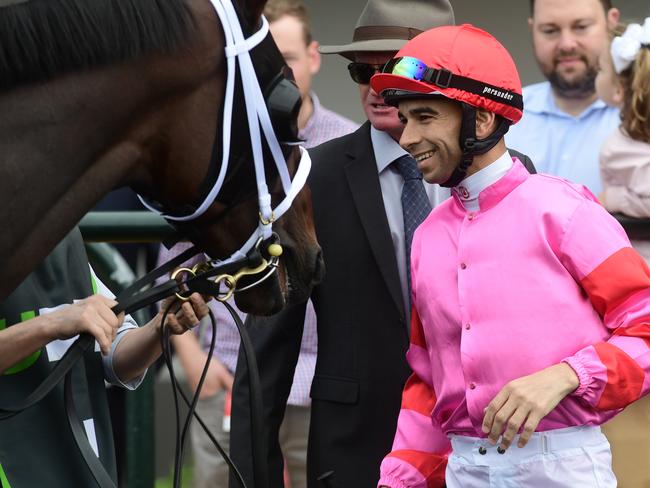
HM: I can tell by the way you sit on a horse where you are in the run, and by the fact that you very rarely use the whip.
JM: I definitely use the whip less than what the jockeys in Australia do. Don’t take it as a criticism, I’m not criticising the jockeys here. In some other places like America in particular, they pretty much don’t use the whip, only as a last resort. The way the horses are trained over there also helps the jockeys, because the horses just run for the jockeys. In Australia, the race is a bit slow, and they just finish off the race. Halfway through they start to pick up the pace, and for some reason I think it’s just part of the Australian country, and of Australian culture. That’s probably why you have the impression that I use the whip less, but I don’t think I use it any less than any other places in the world.
HM: I often say that jockeys are the bravest athletes in the world. Have you ever contemplated how dangerous it is, what you do?
JM: I do agree that it is very dangerous. I’ve been through a lot of incidents and falls, but I’ve been very blessed. I haven’t broken a bone! Honestly, it’s probably not the most dangerous profession in the world. I would say the bull riders take the most risks. Being a jockey is definitely quite risky, and you do risk your life daily.
HM: The only thing that I would say with the bull riding is that there’s one bull. If you fall, or clip heels when racing horses, there’s a whole field that could go over the top of you.
JM: Yeah, both have got dangers, but I would say the bull riders put themselves into much more dangerous positions — they are very brave, and the bulls are very big!
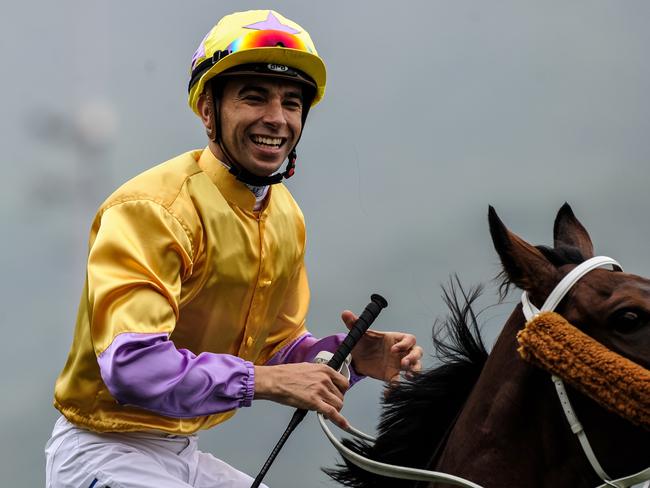
HM: If you owned a horse in the Melbourne Cup and you couldn’t ride it, who would you have ride it for you?
JM: That’s a very good question. There’s plenty of jockeys worldwide who would be able to deliver a good ride at the Melbourne Cup. I have made it very clear that I’m a big fan of Frankie Dettori, but at the moment I think Ryan Moore is riding at the top of the game. I would have Ryan Moore because he’s a very tactical type of jockey. His sensibility on top of the horses, and about judging the pace of the race: there’s no one better that can pace themselves.
HM: You’ve just resumed your season in Hong Kong after an eight-week end-of-season break. Did you go home?
JM: I go back, because Hong Kong racing is very intense. It takes up a lot of your mind. I’ve been growing a lot of white hairs on my head, but at the same time, it’s very enjoyable. When you’re able to cross the line first, in particular in some of those cup races, the joy is there. I live for my break, because I think I deserve it and I need it, but halfway through it I’m already counting days to come back, because I just love the sport so much.
HM: You rode Winx 21 starts ago. She’s won 20 in a row since.
JM: It’s a shame to me, because I had a champion underneath me and I wasn’t able to deliver. I had a very good ride on top of her, but obviously at that point in time she wasn’t the horse she is at the moment.
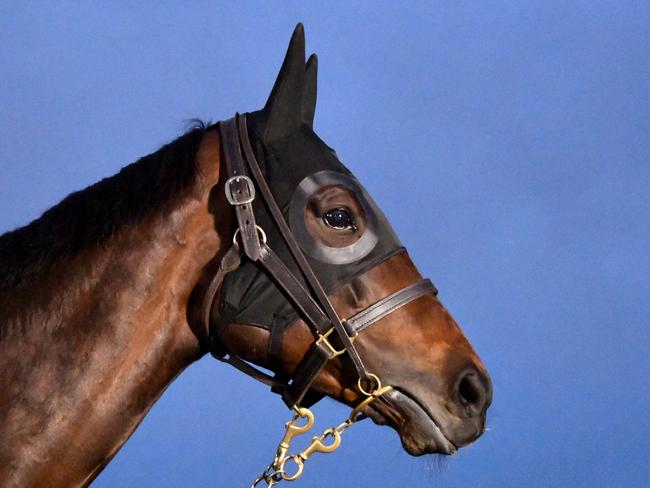
HM: Could you tell she was exceptional?
JM: I could tell she was good, but I didn’t know she was about to become a champion, but she was on the way to possibly becoming the champion she is today. She’s definitely a champion, and probably the best horse in the world at the moment.
HM: You’ve just given hope to every owner that thinks their horse might just be a champion. Why do you love horse racing?
JM: That’s a good question. Why do you love it?
HM: I grew up on a farm and we bred horses, so my obsession is with the horse itself.
JM: As is mine. I interact with them daily, and there’s never been a day where I haven’t learnt something from them. They teach you so much.
HM: What have you learnt?
JM: That they’re pretty much like humans. Every person you get to know, they are different than any other person you’ve met in the past. Horses are pretty much the same. Every time you get on top of a new horse, they act, and they behave, differently to all the others. They look at you in a different way, they respond to your attitude, and your interaction with them is different as well. It’s very connecting, and that gives me pleasure to be around them all the time.
That’s why I was saying when we have the break in Hong Kong, half way through the break I’m already counting the days to get back into it. We spend probably 5 weeks away from the horses, and if you really love them then you miss them. I definitely do.
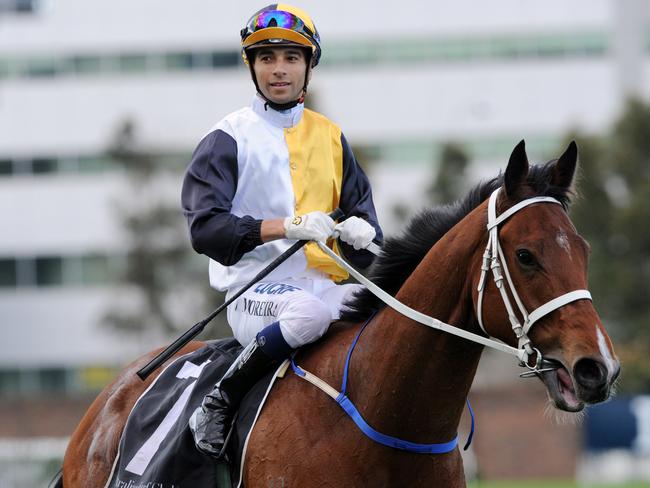
HM: What is your favourite racetrack?
JM: Meydan in Dubai. It’s a place that I’d never live at because it’s probably a bit boring when they have the off season over here, but I love to go back over there during the carnival, and on their biggest race day.
HM: What do you eat daily? Do you get to eat what you want, or do you have to really limit yourself?
JM: It depends on what weight I’m riding at. When I ride at my minimum, 51kg, I have to get onto a really restrictive diet. I have to make sure I don’t put any fats into my body, and I reduce the amount of meals by about 35 per cent or 40 per cent.
HM: Have you always been light? There’s so much fried food in Rio. Did you eat that growing up?
JM: Pretty much. The thing is, I started putting on weight when I went overseas, because I didn’t work as hard as I did early days. In Rio I didn’t have a problem with my weight, but once I start riding overseas I did. Obviously I’m still very light, riding at 51kg at my very minimum. I think that gives me a good opportunity to challenge other jockeys. Zac isn’t any worse, or any better than me, but I’ve beaten him in Hong Kong by good margins just because I’ve been able to ride much lighter than him. He could only take 50 per cent of the rides in each race, whereas I could probably take 99 per cent, so that gives me a big advantage.
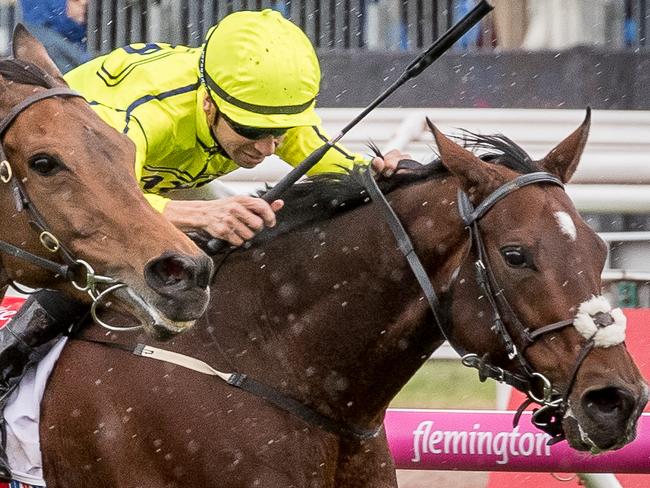
HM: You ride a lot internationally. Of all the races in the world, is there one that you would like to win?
JM: The Melbourne Cup! No doubt about it.
HM: You saying that just because you’re here?
JM: I’m not saying that just because I’m here, or because you are Australian, it’s just because I would love to win it! It’s bloody hard. I nearly got there with Heartbreak City, and I know we had every chance, but we nearly got there. I know if I had have got there, it would’ve been something very special.
HM: So have you got a ride this year?
JM: I actually do, but I’m not allowed to mention the horse’s name.
HM: Could you write it down?
JM: I could write it down, but I couldn’t show you.
HM:(laughs) Is it trained by Chris Waller?
JM: No, it’s not trained by Chris. Definitely not, but it can win!
HM: Maybe text me — I’ll give you my number. Thanks for talking.
JM: (laughs) OK, I’ll text you …. thanks Hamish.
— The Spring Racing Carnival runs until November 25 and features 21 top-level Group 1 Races as well as 26 Country Cups at tracks across Victoria. Visit www.springracingcarnival.com.au for more information.


